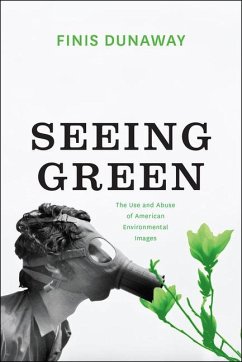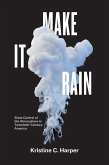American environmentalism is defined by its icons: the "Crying Indian," who shed a tear in response to litter and pollution; the cooling towers of Three Mile Island, site of a notorious nuclear accident; the sorrowful spectacle of oil-soaked wildlife following the ExxonValdez spill; and, more recently, Al Gore delivering his global warming slide show in An Inconvenient Truth. These images, and others like them, have helped make environmental consciousness central to American public culture. Yet most historical accounts ignore the crucial role images have played in the making of popular environmentalism, let alone the ways that they have obscured other environmental truths. Finis Dunaway closes that gap with Seeing Green. Considering a wide array of images-including pictures in popular magazines, television news, advertisements, cartoons, films, and political posters-he shows how popular environmentalism has been entwined with mass media spectacles of crisis. Beginning with radioactive fallout and pesticides during the 1960s and ending with global warming today, he focuses on key moments in which media images provoked environmental anxiety but also prescribed limited forms of action. Moreover, he shows how the media have blamed individual consumers for environmental degradation and thus deflected attention from corporate and government responsibility. Ultimately, Dunaway argues, iconic images have impeded efforts to realize-or even imagine-sustainable visions of the future. Generously illustrated, this innovative book will appeal to anyone interested in the history of environmentalism or in the power of the media to shape our politics and public life.
Hinweis: Dieser Artikel kann nur an eine deutsche Lieferadresse ausgeliefert werden.
Hinweis: Dieser Artikel kann nur an eine deutsche Lieferadresse ausgeliefert werden.








